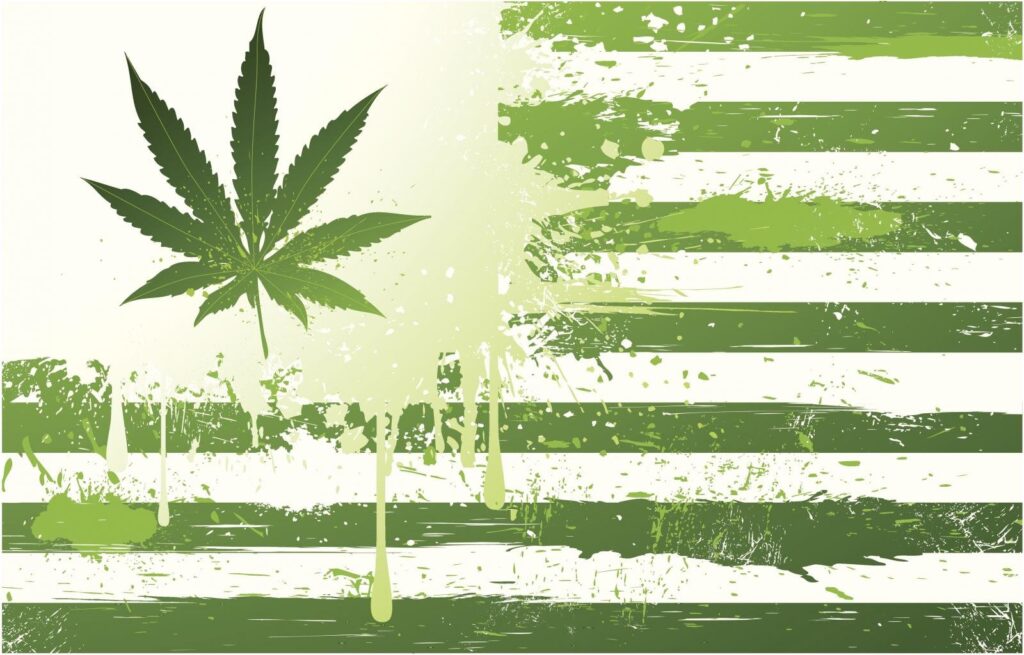Anxiety, including Generalized Anxiety Disorder (GAD), may not be directly listed as a qualifying condition for medical marijuana in all jurisdictions. However, in some cases, physicians may determine it to be a qualifying condition if deemed appropriate after consultation. It’s essential to consult with a healthcare professional to understand the specific regulations and guidelines in your area.
What States Allow MMJ Cards for Marijuana and Anxiety?
Research has demonstrated the effectiveness of using medical marijuana (MMJ) to alleviate anxiety, benefiting individuals from diverse backgrounds, whether they experience chronic or occasional anxiety. While it’s essential to acknowledge that cannabis consumption alone cannot fully “treat” anxiety, it can significantly improve symptom management when used responsibly.
Due to the observed therapeutic advantages, several states in the US now include anxiety as a qualifying medical condition for MMJ. This recognition underscores the growing acceptance of MMJ as a legitimate option for individuals seeking relief from anxiety-related symptoms.
The states that qualify marijuana for anxiety are:
- Pennsylvania,
- Puerto Rico,
- North Dakota, and
- New Jersey
- New Mexico
- Nevada
- Oklahoma
- Virginia
Is it safe to use cannabis for anxiety and depression?
Regular cannabis use poses a risk of dependence, contrary to common misconceptions. There exists a possibility of developing cannabis use disorder (CUD), as cannabis can be addictive.
Research from a 2018 review indicates that individuals with clinical depression or bipolar disorder have a higher likelihood of developing CUD. Moreover, recent studies have revealed a strong correlation between major depression and CUD, with those affected by CUD being three times more likely to experience major depression or generalized anxiety disorder.
Beyond dependency concerns, cannabis use alongside mood disorders can present additional risks. Some antidepressant and anti-anxiety medications may interact with cannabis, leading to adverse side effects.
For individuals considering self-medication with cannabis, it is advisable to consult a healthcare professional knowledgeable about cannabis use. Openly discussing cannabis consumption with a cannabis-friendly doctor, psychiatrist, primary care physician, or any prescribing doctor is crucial. This ensures comprehensive care and allows for consideration of potential interactions between cannabis and prescribed medications.
Cannabis and Anxiety Disorders
According to a study, cannabis has been shown to temporarily reduce self-reported levels of anxiety, depression, and stress. However, this effect appears to be short-term, with no long-term reduction in anxiety or depression observed. In fact, the study concluded that using cannabis to treat depression may worsen depression symptoms over time.
While there is limited research on cannabis’s effectiveness in treating anxiety, some evidence from studies conducted in 2018 and 2019 suggests that CBD, a compound found in cannabis, may have potential in treating anxiety, particularly social anxiety disorder and post-traumatic stress disorder (PTSD).
Moreover, preliminary research indicates that low doses of THC, another compound in cannabis, may offer relief from anxiety. However, further studies are needed to confirm these findings.
It’s important to note that cannabis use may also lead to increased anxiety in some individuals. High levels of THC, the psychoactive component of cannabis, have been associated with heightened anxiety symptoms, such as racing thoughts and increased heart rate.
Overall, while cannabis shows promise in temporarily alleviating anxiety and depression symptoms, its long-term effects and potential to exacerbate certain mental health conditions warrant further investigation.
Start with a low dose of medical marijuana and monitor its effects closely. Gradually increase the dosage to find the optimal level for maximum benefit while minimizing side effects. Follow dosing recommendations from your medical team to tailor your regimen safely and effectively.
Anxiety, including Generalized Anxiety Disorder (GAD), isn’t directly listed as a qualifying condition for medical marijuana in Florida. However, patients may still qualify if their physician deems it appropriate after consultation. Despite this, anxiety ranks among the most common conditions for which patients receive medical marijuana in Florida.
Marijuana can help alleviate anxiety through various mechanisms. Some patients experience direct relaxation effects, while others benefit from improved sleep or mood elevation. It’s essential to discuss these options with your physician to determine the most suitable treatment approach for you.
Using marijuana for anxiety can have mixed results. While it may provide short-term relief for some individuals, it can also exacerbate symptoms or lead to dependence. It’s crucial to consult with a healthcare professional to weigh the potential benefits and risks before considering marijuana as a treatment option for anxiety.

